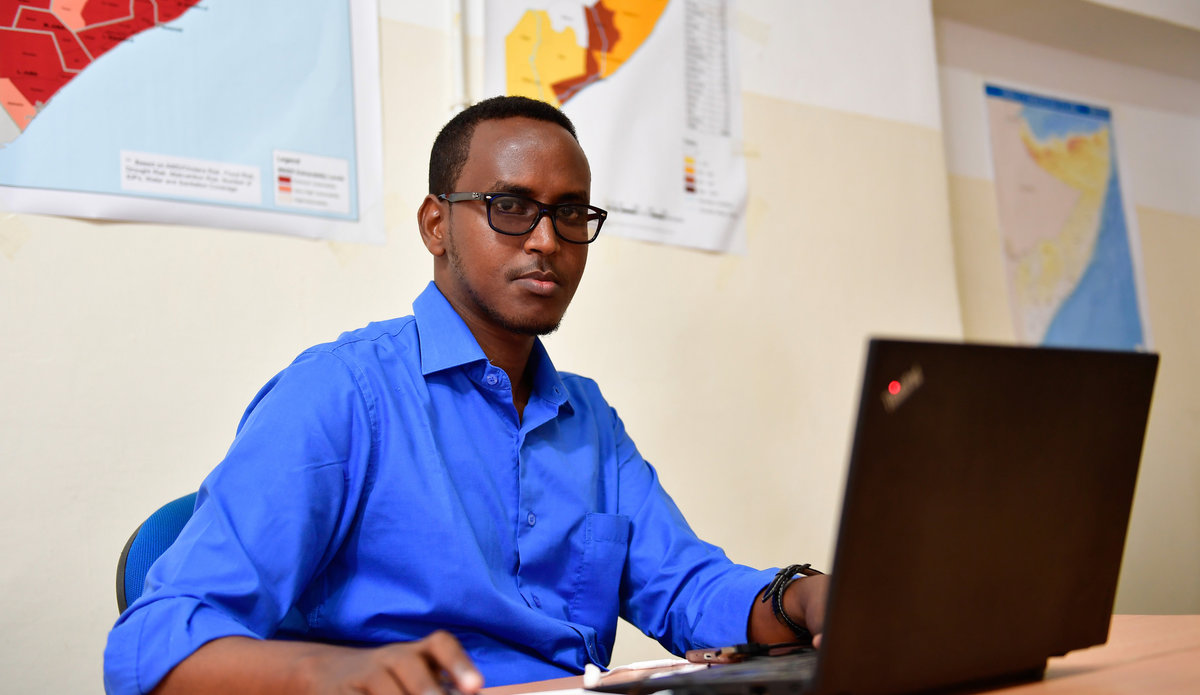Aid worker pleads for continued humanitarian assistance for Somali communities
Ridwaan Abdi remembers vividly his life in Somalia with his parents during the civil war.
“I was about four years of age, and we would lineup to receive nutrition biscuits,” Ridwaan recalls. “I know what it feels like to have no food, no shelter, and no access to water. I was one of the thousands of children who experienced real hunger.”
Ridwaan says his childhood experience influenced his choice of career.
“What I witnessed living in Mogadishu during the civil war greatly determined my decision to become a humanitarian worker,” he remarks.
Ridwaan joined the Somali Aid Foundation, a non-governmental organization that supports refugees living in Kenya’s Dadaab refugee camp and settlements inside Somalia. He also worked with other international organisations such as the United Nations Population Fund (UNFPA) and INTERSOS. As a result of his contribution to humanitarian work, Ridwaan was recently appointed Director of the National Humanitarian Coordination Centre (NHCC) in the Federal Ministry of Humanitarian Affairs and Disaster Management.
“What happened to me in the past inspired me, made me stronger. I believe that if our institutions are upgraded, they can transform the lives of many people. I am doing my part, to the best of my ability, to build a system to protect my people,” he adds.
The establishment of NHCC has expedited the delivery of humanitarian assistance in Somalia. The Centre works with the UN, the European Union and other international partners such as the Organization of Islamic Cooperation to devise programmes suitable for alleviating the suffering of millions affected by drought.
"The increase in humanitarian efforts averted a looming famine, but the situation remains daunting,” Ridwaan emphasizes, urging for continued humanitarian assistance.
Nearly 800,000 people were displaced during 2017 as a result of the prolonged drought in Somalia. Ridwaan believes that a contingency plan is needed to improve the country’s response mechanisms during crises and help build up the resilience of vulnerable communities.
“I still recall the case of this family in Nugal region, in northeastern Somalia, who had lost their entire camel herd to the drought,” he says. “They could have minimized the loss by selling off some of the camels and investing the money in a business, but they did not have this knowledge of animal management.”
Ridwaan also appeals for the opening of main supply routes to facilitate access to remote parts of the country, where populations are in dire need of humanitarian assistance.
 UN
UN





